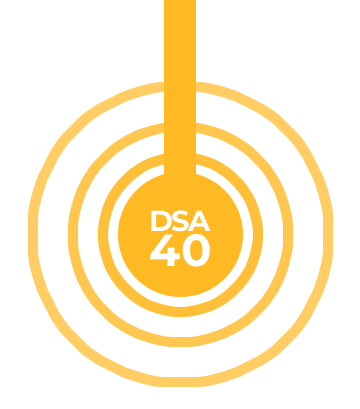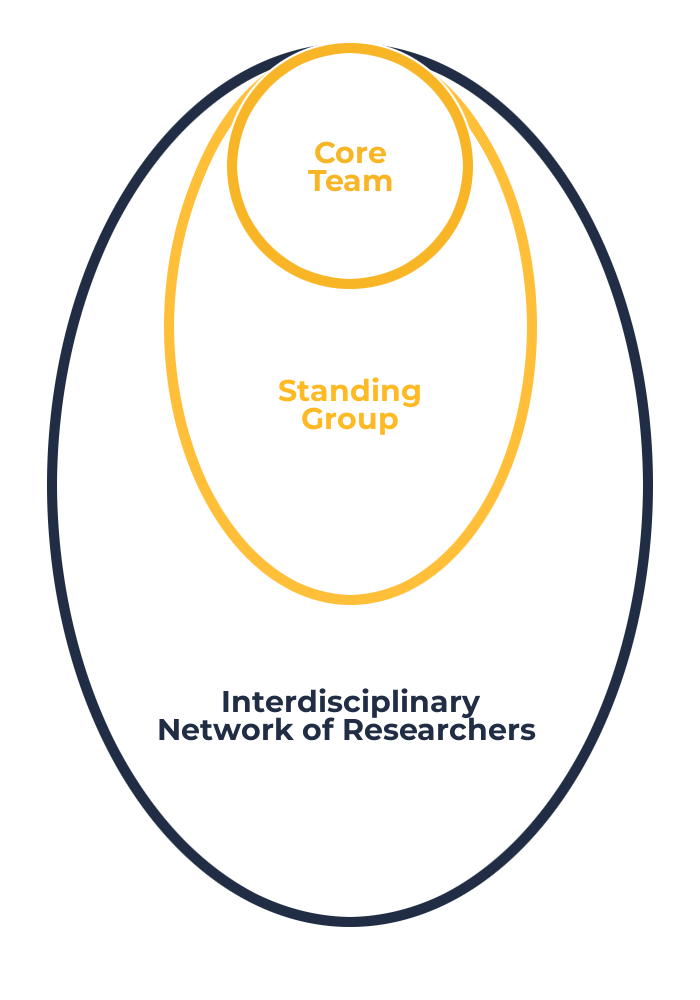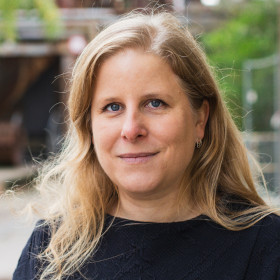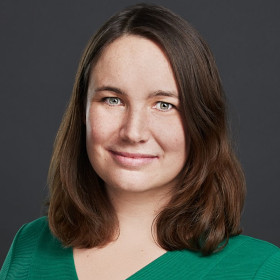About
The Collaboratory

Starting Point
In August 2023, the Digital Services Act (DSA) went into effect. It aims to harmonise rules on the provision of intermediary services in the European Union (EU) with the objective of ensuring a safe, predictable and trusted online environment. It also recognises the societal risks that the dissemination of disinformation or other content may generate.
Thus, DSA Art. 40 requires platforms to grant data access to researchers and non-profit organisations in order to detect, identify and understand systemic risks in the EU.
This marks the first right to scientific data access worldwide.
Mission
The DSA 40 Data Access Collaboratory will monitor and evaluate the legislation’s implementation process to ensure that scientists and non-profit organisations receive data access for the study of systemic risks. This requires the effective coordination of various actors (from science, civil society, politics, and platforms) on different levels (national, international, and transnational) with regards to different kinds of data (from non-sensitive public data to sensitive non-public data) available through various interfaces (such as APIs, archives, or sandboxes).
It is our goal to foster effective collaboration between different stakeholders to enable platform data access for the study of systemic risks in the EU.
The DSA 40 Data Access Collaboratory pursues this goal on four central areas of activity
information and networking for the scientific community
We want to draw attention to the option of data access across scientific disciplines, support researchers with their data access applications, and provide networking opportunities for joint research projects and trans-disciplinary exchange.
consulting of stakeholders in science, society and politics
We seek a trusted exchange with various actors to help realise the regulation’s goals. To this end, we aim to serve as a mediator between researchers, civil society, and political actors providing relevant information for the establishment of easy and practical data access.
monitoring & evaluation of the Art. 40 implementation process
We collect feedback from researchers to better understand how platforms respond to various data access requests, to identify potential shortcomings or areas for improvement, and to evaluate if scientific data access has improved as a result of the regulation. this documentation will be regularly published and publicly accessible.
coordination and co-authorship of data access applications
As mediators of different interests and stakeholders, we are uniquely positioned to develop coordinated multi-party access requests of appropriate size (in cooperation with the standing group and other interested researchers) that will not only address open research questions but can also be useful to clarify infrastructural and procedural requirements.
Structure

The DSA 40 Data Access Collaboratory is a joint project of the European New School in Frankfurt/Oder and the Weizenbaum Institute in Berlin and closely associated with both research institutions through our principal investigators.
Core Team
Together with the Collaboratory Coordinator the Principal Investigators form the core team of the DSA 40 Data Access Collaboratory, which handles communication within the network as well as coordination and the technical implementation of all Collaboratory projects.
Standing Group
The standing group expands the core team with a group of interdisciplinary researchers who meet regularly to provide expertise, support and exposure to the Collaboratory. Its goal is to grow the body of involved researchers beyond the typical disciplines of platform research by introducing the initiative at conferences, workshops and other opportunities for decentral, trans-disciplinary networking.
Interdisciplinary Network of Researchers
The goal of the Collaboratory is to build an interdisciplinary network of platform researchers in Germany, Europe and beyond. We hope to become a platform that informs, networks and supports researchers with regards to data access applications in order to foster collaboration and insight into systemic risks.
Our Members
Core Team

Ulrike
Klinger
Principal Investigator
University of Amsterdam

Jakob
Ohme
Principal Investigator
Weizenbaum Institute

LK
Seiling
Collaboratory Coordinatior

Sophia
Graf
Student Assistant
Standing Group

Jakob
Jünger
University Münster

Katrin
Weller
GESIS – Leibniz Institute
for the Social Sciences

Philipp
Lorenz-Spreen
Technical University
Dresden

Judith
Möller
HBI - Leibniz Institute
for Media Research

Simon
Munzert
Hertie School
Berlin

David
Garcia
University of Konstanz

Juliane
Mendelsohn
Technical University
Ilmenau

Daniel
Schnurr
University Regensburg

Hajo
Boomgaarden
University of Vienna
